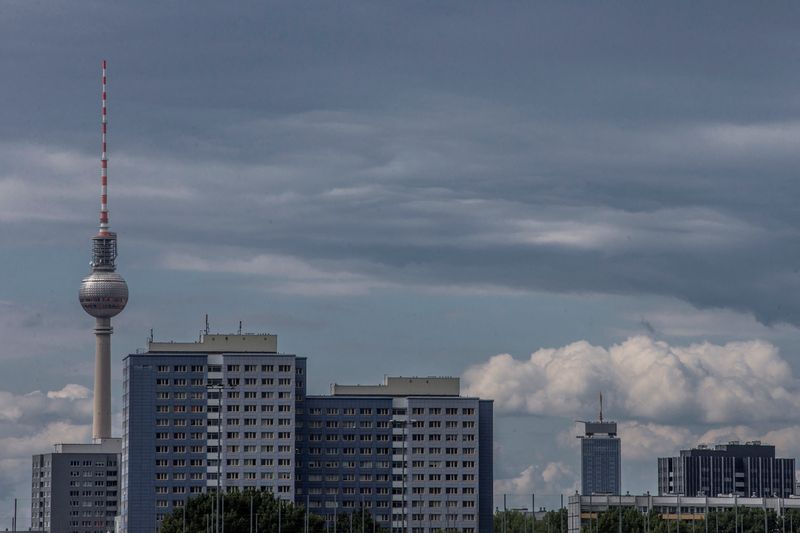By Indradip Ghosh
BENGALURU (Reuters) - Home prices in Germany will fall by more than 5% this year and stagnate in 2024, according to property analysts polled by Reuters who said rents will become even less affordable as more potential buyers shun an expensive market.
Housing in Europe's largest economy, which used to rise only incrementally in price but rapidly became more expensive in recent years as a result of cheap borrowing costs, is going through its biggest crisis in decades.
Building permits for apartments fell 27% during the first half of 2023, and a series of property developers have filed for insolvency.
With average house prices having surged 25% during the COVID-19 pandemic, higher interest rates and higher living costs in a struggling economy have driven many to rent while they anticipate house prices will fall.
The median view from an Aug 14-30 Reuters poll of 14 property experts forecast average home prices to decline 5.6% in total over the course of 2023, nearly identical to findings from a poll taken three months ago.
All but one predicted prices would fall this year. Forecasts were in the range of a fall of 12.0% to a rise of 2.3%.
House prices were forecast to stagnate next year, an upgrade compared to the 2.0% fall predicted three months ago.
"We do not expect to see a significant recovery in the German real estate market anytime soon," said Carsten Brzeski, global head of macro research at ING, adding that an expected mild correction followed by a drift upward next year "will result in overall affordability remaining low".
Average residential prices declined 6.8% in the first quarter from a year earlier, the biggest slump since official data were first published over two decades ago.
"While borrowing rates are likely to be lower next year than this year, they will by no means be at comparably low levels as during the ECB's zero interest rate policy period," Brzeski said.
The European Central Bank will raise rates once more this year, taking the deposit rate to 4.00%, according to a slim majority of economists polled separately by Reuters, and no cut was predicted until the second quarter of next year.
That comes after many years of close to zero and negative policy interest rates following the global financial crisis and during the pandemic.
Analysts who answered an additional question were evenly split on whether purchasing affordability for first time homebuyers would improve or worsen over the coming year.
RED HOT RENTS HERE TO STAY
With purchasing affordability not expected to improve much despite predictions of a decline in house prices, pressure on rental markets is likely to increase.
All 13 strategists who replied to an additional question said already-surging average rents would either rise significantly or slightly across the rest of 2023.
Eleven of 14 respondents said rental affordability would worsen over the coming year. Three said it would improve.
"There is currently strong upward pressure on rents...a large share of potential buyers who are no longer able to purchase property due to higher interest rates are now increasingly asking for rental apartments," said Sebastian Schnejdar, senior real estate analyst at BayernLB.

"Due to weak new construction, housing for rent and for sale will remain a scarce commodity."
(For other stories from the Reuters quarterly housing market polls:)